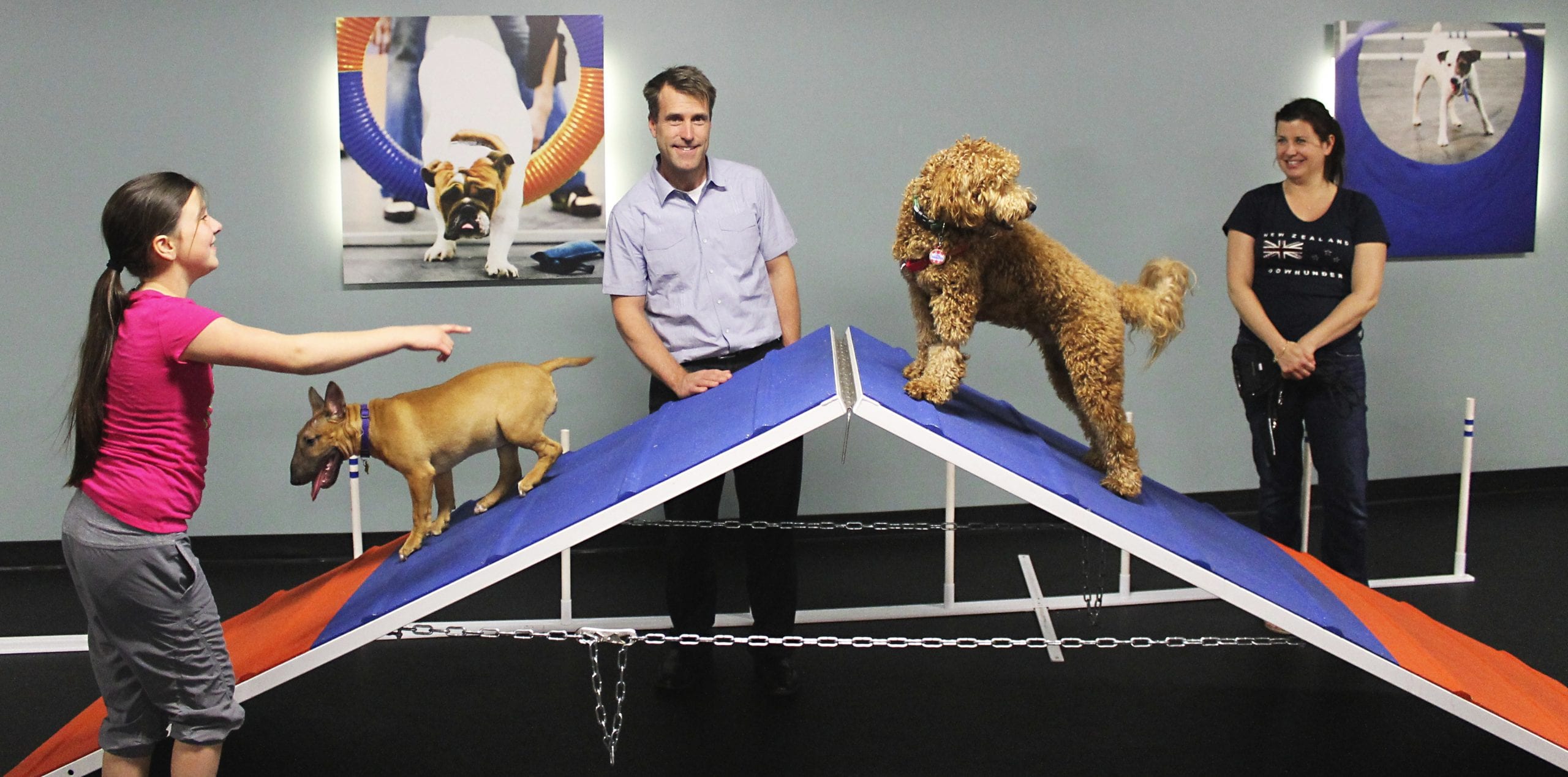In their Oct. 25, 2019 edition, Forbes Magazine shares “Lessons In Experiential Retail From The Pet Industry.” Their spotlight is on Zoom Room. Author Blake Morgan is a futurist and expert on innovations in customer experience. This is a case study of a future-proof retail concept that “pay[s] attention to every aspect of the human experience.”
Millennials and Experiential Retail
Millennials are now the dominant spenders in the pet sector. Additionally, many reports detail their predilection for experiences over commodities. And Zoom Room takes advantage of both trends.
Owners are with their dogs at all times, so they are active participants. Clients enjoy carefully curated and highly social experiences. The climate-controlled indoor gym space caters to the customer experience. At the same time, it provides five-star training for the dogs.
Zoom Room also appeals to millennials by taking photos and videos of dogs during their training sessions, which it then shares with the owners on a platform that integrates into social media. Dog owners share the impressive pictures to showcase their dogs, and it also adds to the Zoom Room brand and experience.
Blake Morgan, “Lessons in Experiential Retail from the Pet Industry,” Forbes, Oct 25, 2019.
Innovations in Personalization
Benefits of a Data-Driven Business Model
With a tech stack unheard of in either the pet sector or franchises, Zoom Room utilizes a supremely data-driven approach.
Franchisees benefit from detailed reports and forecasting tools culled from all locations but weighted for each store. Additionally, custom analytics drive personalized message content, dynamic pricing, and many other aspects of the business.
In experiential retail of any kind, data and personalization are key. Zoom Room is data driven to provide the best experience to each person.
Blake Morgan, “Lessons in Experiential Retail from the Pet Industry,” Forbes, Oct 25, 2019.
Retail Flight
Online shopping has shuttered the doors of countless traditional retail brands. But even among experiential retail businesses, digital threats loom large.
For example, Peloton could replace the need for brick-and-mortar boutique fitness gyms. The rise of “ghost restaurants” could spell the demise of traditional fast casual restaurants.
But dogs need socialization. Also, the sense of smell. And the physical presence of other dogs, humans and novel cues. Remote or digital dog training can’t be on the horizon, due to biology.
That’s why Forbes describes Zoom Room as, “turning the traditional training model on its head.” It’s all in the company’s motto. We don’t train dogs. We train the people who love them.
Instead of customers dropping off their dogs for a one-time training session to fix a specific issue, Zoom Room builds relationships between dogs and dog owners to encourage socialization and improve skills and agility. At Zoom Room, clients are always with their dogs and have the responsibility to look after them. The company creates a secure setting and screens dogs for sociability before allowing them to join the group setting so that everyone feels confident about their dog’s surroundings and safety.
Blake Morgan, “Lessons in Experiential Retail from the Pet Industry,” Forbes, Oct 25, 2019.
Lessons in Experiential Retail
Experiential retail should be social, personalized, fun and engaging. Zoom Room checks these boxes and more. It’s no wonder they have more five-star ratings than any other dog training business. Or that customers show an off-the chart willingness to recommend Zoom Room.
By embracing experiential retail and creating an environment where dogs and owners can bond with each other and others like them, Zoom Room is turning the dog training space upside down.
Blake Morgan, “Lessons in Experiential Retail from the Pet Industry,” Forbes, Oct 25, 2019.

